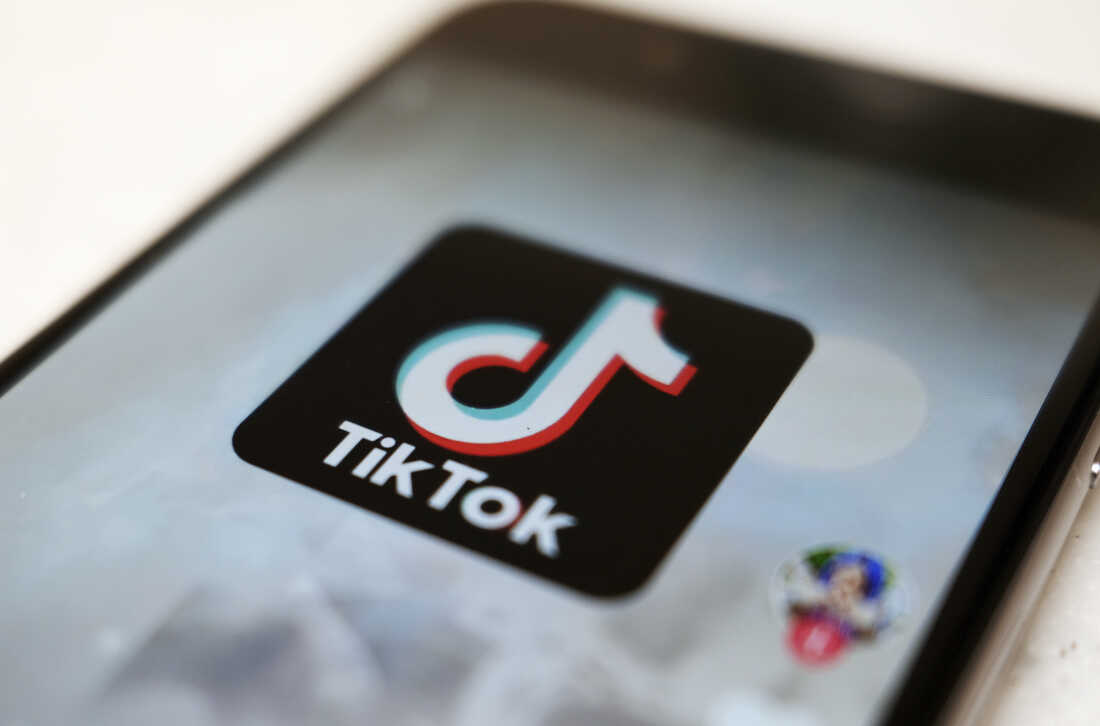Technology
TikTok challenges U.S. ban in court, says it violates the first amendment
TikTok’s suit is in response to a law passed by Congress giving ByteDance up to a year to divest from TikTok and find a new buyer, or face a nationwide ban.
Kiichiro Sato/AP
hide caption
toggle caption
Kiichiro Sato/AP
TikTok’s suit is in response to a law passed by Congress giving ByteDance up to a year to divest from TikTok and find a new buyer, or face a nationwide ban.
Kiichiro Sato/AP
TikTok and its parent company on Tuesday filed a legal challenge against the United States over a law that President Biden signed last month, which would outlaw the app nationwide unless it finds a buyer within a year.
In the petition filed in the Court of Appeals for the District of Columbia Circuit, the company said the legislation exceeds the bounds of the constitution and suppresses the speech of millions of Americans.
“For the first time in history, Congress has enacted a law that subjects a single, named speech platform to a permanent, nationwide ban, and bars every American from participating in a unique online community with more than 1 billion people worldwide,” according to the legal filing.
The law, passed through Congress at lightning speed, which caught many inside TikTok off guard, is is intended to force TikTok to be sold to a non-Chinese company in nine months, with the possibility of a three month extension if a possible sale is in play.
Lawmakers in Washington have long been suspicious of TikTok, fearing its Chinese owner could use the popular app to spy on Americans or spread dangerous disinformation.
But in the company’s legal petition, lawyers for TikTok say invoking “national security” does not give the government a free pass to violate the First Amendment, especially, TikTok, argues, when not public evidence has been presented of the Chinese government using the app as a weapon against Americans.
According to the filing, the law is based on “speculative and analytically flawed concerns about data security and content manipulation — concerns that, even if grounded in fact, could be addressed through far less restrictive and more narrowly tailored means.”
Constitutional scholars say there are few ways for the government to restrict speech in a way that would survive a legal challenge. One of those ways, however, is if the government can demonstrate a national security risk. Also key, legal experts say, is the government showing the speech suppression was the least restrictive means of doing so.
TikTok says Congress ignored less restrictive ways of addressing the national security concerns.
The suit sets off what could be the most important battle for TikTok, which has been fending off legal challenges to its existence in the U.S. since former President Trump first sought to ban the app through an executive order in the summer of 2020. That effort was blocked by federal courts.
Since then, Democrats and Republicans have shown a rare moment of unity around calls to pressure TikTok to sever its ties with ByteDance, the Beijing-based tech giant that own owns the video-streaming app.
Congress has never before passed legislation that could outright ban a wildly popular social media app, an act the U.S. government has criticized authoritarian nations for doing.
In the case of TikTok, however, lawmakers have called the app a “spy balloon on your phone,” emphasizing how the Chinese government could gain access to the personal data of U.S. citizens.
Worries also persist in Washington that Beijing could influence the views of Americans by dictating what videos are boosted on the platform. That concern has only become heightened seven months before a presidential election.
Yet the fears so far remain hypothetical.
There is no publicly available example of the Chinese government attempting to use TikTok as an espionage or data collection tool. And no proof that the Chinese government has ever had a hand over what TikTok’s 170 million American users see every day on the app.
TikTok, for its part, says it has invested $1.5 billion on a plan, dubbed Project Texas, to separate its U.S. operation from its Chinese parent company. It deleted all of Americans’ data from foreign servers and relocated all of the data to servers on U.S. soil overseen by the Austin-based tech company Oracle. While the plan was intended to build trust with U.S. lawmakers and users, reports surfaced showing that data was still moving between staff in California and Beijing.
Despite the new law giving TikTok the ultimatum of selling or being shut down, there are many questions around how the app could even be bought by another company or group of investors.
One major obstacle in any possible sale of TikTok would be winning the support of China. The country would have to sign off on any purchase of the app, and officials in Beijing are adamantly against any forced sale.
In 2020, amid the Trump administration’s clamp down on the app, China added “content-recommendation algorithms” to its export-control list, effectively adding new regulations over how TikTok’s all-powerful algorithm could ever be sold.
ByteDance, not TikTok, developed and controls the algorithm that determines what millions see on the app every day. The technology has become the envy of Silicon Valley, and no U.S. tech company has been able dislodge TikTok’s firm hold on the short-form video market. Experts say key to its success is its highly engaging and hyper-personalized video-ranking algorithm.
